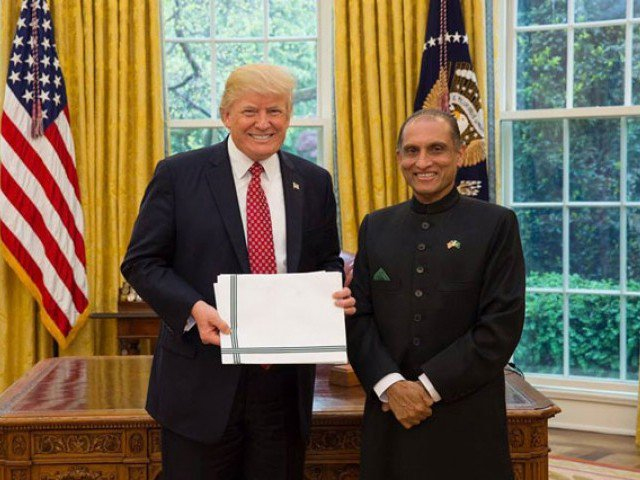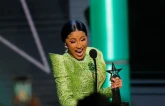
It is somewhat sad that either by coincidence or otherwise whenever civilian governments have been in power, whether it was the PPP or the PML-N, they were subjected to US sanctions or remained under pressure. It was Pakistan’s nuclear programme that was the rationale, although during military regimes for expedient reasons it was overlooked by Washington.
Once again we are undergoing a very challenging phase of our relationship with the US. We are being continuously blamed for providing sanctuary to the Haqqani Network and the Taliban Shura. Denial by the Pakistani side is not accepted on its face value and the commander of Nato-led coalition in Afghanistan, Gen John Nicholson, said that Pakistan has not changed in its support for the Haqqani Network and the Taliban Shura, the very groups that they are fighting. The secretary of state and senior members of the department of defence have made similar scathing statements. This accusation clearly implies as if Pakistan is not an ally but working against the US’s interests.
Don’t expect unilateral cooperation, Pakistan to tell US defence secretary
The visit of Secretary of Defence General Mattis was rightly given great weightage, as he is one of the few members of the administration that enjoys the confidence of President Trump. The way the state department has been sidelined and the secretary of state apparently on the way out, the department of defence has assumed great importance.
Pakistan’s relations with the US are going through a difficult and unpredictable phase. No doubt allegations that Pakistan is providing sanctuary to the Haqqani Network and Taliban leadership is nothing new, but since President Trump has assumed office he has taken a very strong stand on the question of sanctuaries. The warnings by the state department and General Nicholson’s statement preceding Gen Mattis’s visit shows that either the US does not believe in the veracity of Pakistan’s version or deliberately accuses us to scapegoat its failures. In fact, it is more of the latter. For in recent months, Pakistan has taken effective measures to ensure that the Haqqani Network and the Taliban leadership do not use Pakistan’s territory. It is clear that our army has taken very concrete steps that the Taliban or its ally the Haqqani Network does not operate from the Pakistani soil. But surely, it does not want to antagonise the Taliban leadership to an extent that should make them its enemy, as Pakistan is already facing the challenge of coping with Indian and Afghan hostility. Moreover, Pakistan’s contention is that the Taliban are a significant force in Afghanistan and merely relying on military force to subjugate the insurgency is unlikely to succeed. The solution lies in giving greater weightage to political engagement.
The visit of Mr Tillerson, secretary of state, and the recent one of Secretary of Defence General James Mattis suggests the pressure Trump administration is mounting on Pakistan. Indications are that the Pakistan Army will go only to some extent in meeting the US’s demands. As the Foreign Office spokesperson stated recently Pakistan would try to seek common ground. This point has been reiterated during the middle-tier talks that took place recently as well.
Withholding of the Coalition Support Fund of $700 million by the US has also not been well received, as this is the amount that Pakistan has already spent in providing services. If unfortunately, measures taken by Pakistan are unable to satisfy the Pentagon and the Trump administration it could lead to the US stepping up drone attacks. It could also withdraw the Non-Nato ally status and completely cut off aid. The worst-case scenario would be if the US’s expected winter offensive against the Taliban fails. In its frustration, it could unjustly blame Pakistan as sponsor of terrorism and apply strict UN sanctions. Pakistan understands all this but can only go that far while protecting its national interests. If the unfairly US pressure on Pakistan continues it will only push it more into the fold of the Chinese. Pakistan, meanwhile, is also trying to improve relations with Russia and Iran and focus more on Muslim countries. Its efforts to a large extent have been fairly successful. Furthermore, with the US engaged in serious confrontation with North Korea, having extremely tense relations with Iran and deep involvement in Syria, will it be prepared to open another front against Pakistan? However, President Trump and his team in the interim will keep the pressure, blowing hot and cold but keeping the channels of communication open. Despite the US’s present attitude it understands Pakistan’s value in the region and will only go that far. Meanwhile, it is expected that the Pakistan Army will keep a tight leash on the Haqqani Network, the Tehreek-e-Taliban Pakistan and Lashkar-e-Taiba so that it does not provide the US any excuse to malign it. Pakistan understands that there are mandatory obligations based on the UN resolutions 1267 and 1822 that compel it to take effective measures against these organisations. Meanwhile, civil and military leadership are likely to step up efforts to improve relations with Afghanistan by removing their misgivings.
Despite recent setbacks Pakistan needs to make every effort to improve relations with Washington. It ought to step up the channels of traditional diplomacy — mutual visits by political and military leadership. Pakistan in the past has neglected public diplomacy, which too could play an effective role in correcting our image. This would require greater interaction at the civil society level. Pakistani intellectuals and diaspora need to be more active in their interaction with US think tanks such as Brookings, Carnegie, Hudson Institute and American Enterprise. These institutions play a major role in influencing American policy at the White House, the state department and the department of defence.
Published in The Express Tribune, December 6th, 2017.
Like Opinion & Editorial on Facebook, follow @ETOpEd on Twitter to receive all updates on all our daily pieces.












COMMENTS (1)
Comments are moderated and generally will be posted if they are on-topic and not abusive.
For more information, please see our Comments FAQ